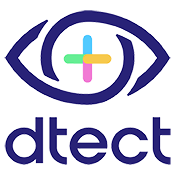Free webinars + stay connected
Access our most recent webinars with leading thinkers in the world of market research and stay informed about new courses and upcoming events by joining our mailing list.
About this course
Learning objectives
After completing this course, you should be able to:
- Discuss how the integration of technology into our daily lives is creating new opportunities for market researchers.
- Define secondary data as distinct from primary data.
- Describe the various types of data sources available to researchers including syndicated data, transaction data, social media data, and Internet of Things data, emphasizing the strengths and weaknesses of each.
- Describe the various components of the “big data” ecosystem, reinforcing that all data sources—primary and secondary—have compromises and the researcher’s responsibility to select the “best available data” given the business issue being studied.
- Identify some of the typical barriers a researcher encounters in gaining access and using secondary data.
- Discuss the related concepts of data governance, data curation, and data provenance and their importance in assessing the quality of secondary data.
- Discuss the value and the challenges that can be realized by linking primary and secondary data, including the role of data brokers.
- Discuss the ways in which traditional analytic techniques can be applied to secondary data.
- Describe what is meant by machine learning and its relevance when working with large secondary datasets.
- Discuss the challenges and emerging solutions that researchers face when dealing with unstructured data—text, photographs, video, etc.
- Discuss the challenges the researcher faces when using secondary data in a global context.
- Describe the ethical issues, especially related to privacy and confidentiality, when using secondary data.
Who should attend?
- Entry-level researchers looking for a solid introduction to secondary data.
- Mid-level staff seeking to expand their skillset.
- Experienced researchers looking to catch up with the latest developments.
- Corporations seeking professional development options for their internal training portfolio.
- Suppliers seeking courses for new-employee onboarding.
- Researchers interested in understanding the important role that syndicated data can play in research design and execution.
- Analysts needing to understand what secondary data sources exist and where to find them.
- Client-side interested in understanding how to leverage data their companies may already possess.
- People just entering the research field who want to understand the full process of market research from beginning to end.
The volume of secondary data available is increasing exponentially. Working with this data sometimes requires resources and techniques that are outside the standard market research toolkit. Some are described in this course. A more thorough overview of some of these techniques can be found in another Principles Express course, Advanced Analytic Techniques.
Continuing Education Information
Students successfully completing graded components earn a Digital Badge (Opens in a new window) and 1.2 University of Georgia Continuing Education Unit (Opens in a new window) (CEU) from The University of Georgia.
As a graduate of the course you will be recognized by industry associations, employers, peer groups and other professionals as understanding how to translate your research findings into reports and presentations that grab your audience’s attention, address the business decision your client needs to make, and offer sound and useful recommendations. This recognition will help you advance in your company and the industry.

CAIP Canada (Opens in a new window) also recommends the course for candidates looking to fill in the gaps or gain a refresher in specific areas.
Knowledge gained by this course
You should be familiar with:
- Research design
- Basic analysis techniques (covered in our Principles Express course, Introduction to Data Analysis
- Knowledge of more advanced analytics techniques also may be useful (covered in our Principles Express course, Advanced Analytic Techniques)
Requirements & policies
Fees & funding information
$359 – Standard Fee
$329 – Association Discount (Members* of: Insights Association; ESOMAR; Canadian Research Insights Council, The Research Society, Intellus Worldwide, QRCA, AMAI, WAPOR-Latinoamérica, MRII Board of Directors, UGA MMR Advisory Board.)
$50 – One-Month Extension (only one extension is granted per participant)
*Membership will be verified.
Prepayment is required to be registered. The prices listed are per person (US Funds).
Cancellation or refund
We will issue a refund, minus a $100 processing fee, if you have not accessed the online course. All cancellation and refund requests must be sent via email to gc-student@uga.edu no later than seven (7) days after your course access information is issued.

Technology
Take advantage of the different features (PDF files, URLs/links to external websites, animated exercises, audio and video clips) you should use a browser such as Chrome (Opens in a new window), Firefox (Opens in a new window), Microsoft Edge (Opens in a new window), or Safari (Opens in a new window) and a fast internet connection provide the best experience. The online platform supports many popular web browser versions. To find out if your computer’s current software configuration is compatible, see System & Software Requirements (Opens in a new window).
Prerequisites
There are no prerequisites for enrolling in Working with Secondary Data: Syndicated and Big Data. However, the course assumes some knowledge of basic research design and quantitative research practices. There is an immeasurable amount of secondary data available, and it is increasing exponentially. Working with this data sumetimes requires resources and techniques that are outside the standard market research toolkit. Prospective enrollees might consider our courses, Advanced Analytic Techniques and Market Research Design and Data Identification.
Textbooks
Suggested (not required)
Malhotra, Naresh K., Essentials of Marketing Research: A Hands-On Orientation, Pearson Education: Upper Saddle River, NJ. ISBN-13: 978-0-13-340182-0 (digital subscription edition)
Included in the online course are suggested reading assignments from the above textbook. These readings are not required content and will not be part of the testing for the course. The textbook suggestions are simply intended to add additional depth to your understanding of the topic.
People & organizations
Author
Bill Bean – Principal, Bean and Associates Consulting
Bill is a senior marketing executive specializing in research and analytics. He has founded shopper insights practices at four Fortune 500 consumer goods companies, conducted research in over 20 countries worldwide, and pioneered many applications of advanced analytics techniques to assess marketing performance. He served on the advisory board for the University of Wisconsin A.C. Nielsen Center for Market Research for ten years as well as a trustee of the Marketing Science Institute

Supporting associations
Founding Organizations
Proud Corporate Sponsors of MRII
 (Opens in a new window)
(Opens in a new window) (Opens in a new window)
(Opens in a new window) (Opens in a new window)
(Opens in a new window) (Opens in a new window)
(Opens in a new window) (Opens in a new window)
(Opens in a new window) (Opens in a new window)
(Opens in a new window) (Opens in a new window)
(Opens in a new window) (Opens in a new window)
(Opens in a new window) (Opens in a new window)
(Opens in a new window) (Opens in a new window)
(Opens in a new window) (Opens in a new window)
(Opens in a new window) (Opens in a new window)
(Opens in a new window) (Opens in a new window)
(Opens in a new window) (Opens in a new window)
(Opens in a new window) (Opens in a new window)
(Opens in a new window) (Opens in a new window)
(Opens in a new window) (Opens in a new window)
(Opens in a new window) (Opens in a new window)
(Opens in a new window) (Opens in a new window)
(Opens in a new window)Supporting Organizations
Prices, course details, dates, and times are subject to change.
Contact us + FAQs
FAQs
View the most frequent questions asked by our learners
Financial and Military Assistance
Find out which programs are eligible for assistance
Accommodations
View our accommodation policy
















